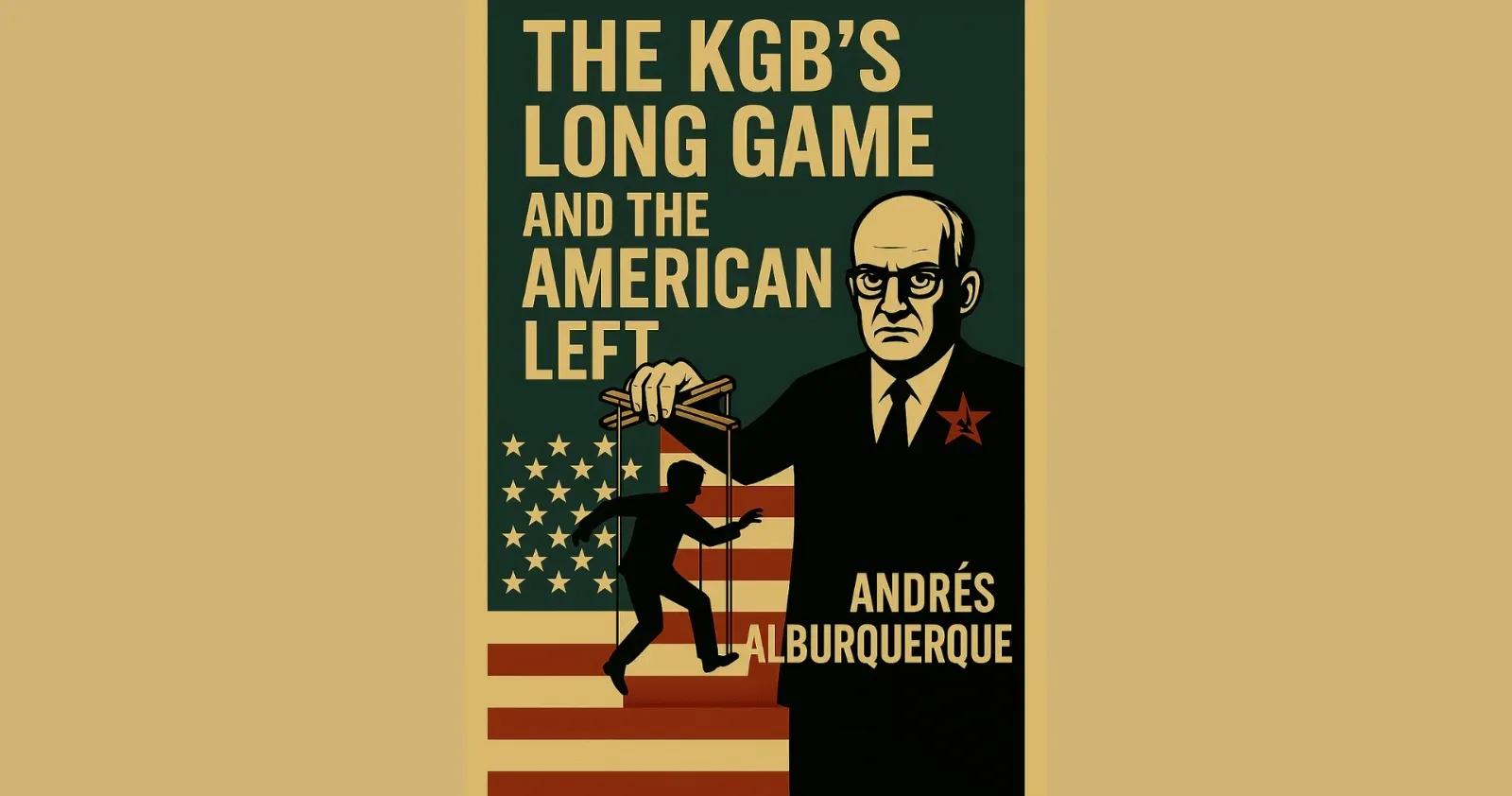Andrés Albuquerque from Miami Strategic Intelligence Institute
In the 1980s, a former KGB informant named Yuri Bezmenov defected to the West and gave a series of interviews and lectures warning about a long-term Soviet strategy designed to weaken and ultimately destabilize the United States.This article will explore Bezmenov's account of KGB psychological warfare, break down its ideological mechanisms, and compare it to trends observed in modern American leftism. The aim is not to promote conspiracy but to examine the coherence between Bezmenov's framework and the current evolution of American politics and culture.
Four Stages of Ideological Subversion
The goal of the Soviet Union was not to defeat the United States through war but to undermine it from within. The plan was not one of direct attack but rather the gradual erosion of American values and institutions through ideological influence. It consisted of a four-step process:
1. Demoralization (15-20 years)
This phase focuses on indoctrinating a generation of students and intellectuals with anti-American, Marxist, and collectivist ideas. According to Bezmenov, by the end of this phase, individuals lose the ability to critically evaluate information or facts. They become ideologically rigid.
“No matter how much authentic information you provide them… they will refuse to believe it.” – Bezmenov
2. Destabilization (2-5 years)
Once the moral compass is lost, destabilization targets key institutions: the economy, law enforcement, and foreign relations. Polarization intensifies. Traditional values are discarded or redefined. They are even labeled as intolerance.
3. Generation of a Crisis
The system enters a crisis, often precipitated by social unrest or economic collapse. A critical point is reached when citizens start demanding radical changes, often leading to a collapse of governance or civil order.
4. Normalization
Finally, a new regime—often authoritarian or collectivist—takes power under the pretext of restoring order. It may not be overtly communist but follows a model of centralized and vertical control. At this point, democracy ceases to function.
Current Parallels in the U.S.
Many conservative commentators and political thinkers have reconsidered Bezmenov's model in recent years, noting parallels between his framework and current trends within progressive movements in the United States. Here are several intersections:
There is a marked parallel between Bezmenov's theory and the rampant decline of the Democratic Party toward the abyss of extreme leftism:
1. Education and Cultural Demoralization
The modern American educational system, especially at the higher levels, has come under scrutiny for promoting ideological frameworks rooted in critical theory, which has Marxist origins. Concepts such as systemic oppression, white privilege, and gender as a social construct dominate academic discourse. Dissenting views are often not only discouraged but condemned as harmful, hateful, or even reactionary.
Bezmenov argued that demoralization required an entire generation of ideological preparation. The current educational landscape reflects precisely that: producing graduates who hate capitalism, patriotism, and traditional social norms and values.
2. Destabilizing Institutions
Key institutions, especially the police, military, and family, have come under increasing ideological pressure. The "Defund the Police" movement, the redefinition of gender roles and marriage, and an increasingly activist judiciary are signs of the destabilization phase.
Economic interventions such as massive stimulus spending, student loan forgiveness, and growing dependence on federal control serve as a clear reminder of Bezmenov's warning that economic and social "crutches" can be used to generate dependence on the State.
3. Manufactured Crisis
COVID-19, the 2020 riots, dubbed by the left "the summer of love," and the hyper-politicization of nearly all cultural events have been seen by some as ideologically instrumentalized crises. Many Americans have become more receptive to surveillance, restrictions on expression, and limitations on movement, all normalized in the name of safety.
These responses were not orchestrated by a foreign power. Bezmenov's central argument is that ideological subversion does not require the presence of the subverter; it is the victims themselves that carry it out. This is heavily based on Antonio Gramsci's dream of destroying the West from within using its own laws and structures. And best of all, this theory has existed since 1920, and it seems we haven't been paying attention. We even ignore its inherent danger. Or worse still...
4. “Normalization”
In the name of progress, new social norms have emerged that appear to be imposed more by social pressure and institutional politics than by democratic consensus. Censorship by the tech giants, ESG (Environmental, Social, and Governance) frameworks, and DEI mandates in corporate and government environments more resemble centralized ideological control than grassroots reform.
Ideology as a Trojan Horse
Bezmenov's message was not about a Soviet plan in the sense of a secret bunker full of programming agents. Rather, he warned about the inherent fragility of free societies, which are subtly induced to lose trust in their core values. The modern left is not necessarily carrying out a KGB conspiracy, but the similarity in the patterns of demoralization and destabilization suggests that ideological subversion can occur organically, through cultural changes and the uncritical adoption of imported ideas that may have lingered in the minds of our puppeteers since the dawn of time. Changes and puppeteers are keywords to follow.
It remains to be seen whether the United States heeds Bezmenov's warning. Although it is decades old, his message remains a caution for any society tempted to sacrifice truth, freedom, and individual responsibility in the name of ideological purity or social justice.
Andrés Albuquerque (Havana, 1956). Senior Fellow at the Miami Strategic Intelligence Institute. Grew up in a family that was a member of the Popular Socialist Party. University professor of Linguistics and English Language. Political analyst for America TV and the Radio Caracol and Radio Actualidad stations, all in Miami. Member of the Republican Party of the U.S.

Comments